Uncategorized
-
 Space
SpaceNew fleets of private satellites are clogging the night sky
As private companies launch dozens of satellites at a time, researchers are assessing the impact on ground-based telescopes.
-
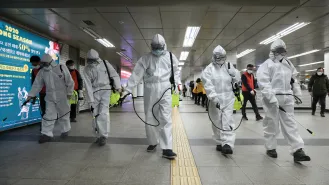 Health & Medicine
Health & MedicineWhat WHO calling the coronavirus outbreak a pandemic means
The world’s top global health organization is asking countries to double down on efforts to both contain the virus and mitigate its impact.
-
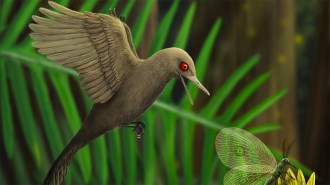 Paleontology
PaleontologyThis ancient dinosaur was no bigger than a hummingbird
The skull of one of these Mesozoic Era birds — the tiniest yet known — was discovered encased in a chunk of amber originally found in Myanmar.
-
 Astronomy
AstronomyHeavy metal may rain from the skies of planet WASP 76b
Astronomers saw hints of iron rain on an ultrahot gas giant, an exoplanet where starlike atmospheric temperatures drive weird weather.
-
 Science & Society
Science & SocietyNew electrodes can better capture brain waves of people with natural hair
Electrodes weren’t designed for people with thick, curly hair. A redesign is needed, says engineer Pulkit Grover.
-
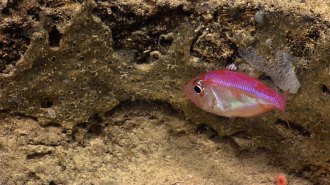 Life
LifeThis is the first deep-sea fish known to be a mouthbreeder
Scientists found over 500 eggs attached to the inside of a parazen fish’s mouth.
By Jake Buehler -

-
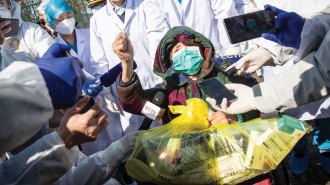 Health & Medicine
Health & MedicineRepurposed drugs may help scientists fight the new coronavirus
Work on similar viruses is giving researchers clues on how to begin developing drugs against the new disease.
-
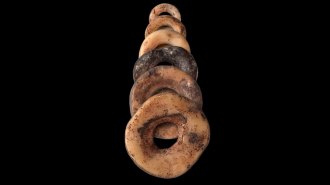 Anthropology
AnthropologyAn ancient social safety net in Africa was built on beads
A Stone Age network of communities across southern Africans was established using ostrich shell beads by around 33,000 years ago.
By Bruce Bower -
 Physics
PhysicsEven a weird hypernucleus confirms a fundamental symmetry of nature
A particle accelerator experiment reveals that a symmetry of nature holds up and hints at what could lurk at the heart of a neutron star.
-
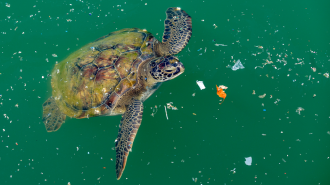 Animals
AnimalsSea turtles may confuse the smell of ocean plastic with food
Sea turtles respond to the smell of plastic that’s been in the ocean similarly to food, suggesting the reptiles may end up eating the harmful debris.
-
 Science & Society
Science & SocietyTo fight discrimination, the U.S. census needs a different race question
Asking about race on the U.S. census can help identify discrimination against minority groups. But sociologists say the question needs a makeover.
By Sujata Gupta